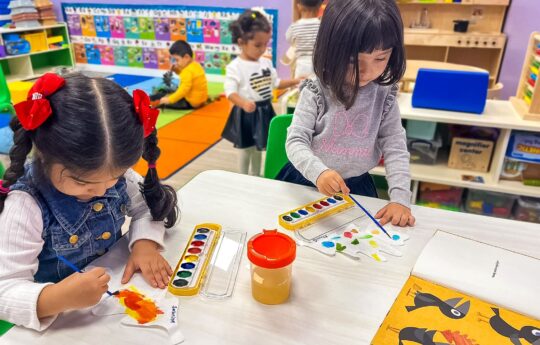
As a new parent, dealing with your child’s challenging behavior can be a daunting task. It’s important to understand that such behavior cannot be disregarded and must be addressed. The threshold for when a child starts to behave more assertively and repeatedly demands what is theirs can vary depending on the environment, such as family, friends, and the chosen daycare. Some children start having temper tantrums as early as age 2, while others may not know there is a means to get what they want until they are five years old.
From tantrums to violence, children can exhibit a wide range of behaviors that can be challenging to manage. It may be difficult to know how to react in the heat of the moment, and it’s normal to occasionally feel overwhelmed and upset. But, there are techniques you may employ to properly handle your kids’ difficult behavior.
Remain Calm and Patient
Being calm and tolerant is the first step in dealing with your kids’ difficult behavior. It’s critical to keep in mind that kids are still figuring out how to control their emotions and conduct, therefore they will blunder. Even if you are disappointed or furious, it’s crucial to react calmly and patiently. Take a deep breath and make an effort to maintain your composure so that you may react calmly and wisely. By remaining calm and patient, you can model positive behavior and help your child learn how to manage their emotions and behavior more effectively.
Understand the Cause of the Behavior
It’s important to comprehend the root causes of your children’s behavior if you want to handle it properly. Several factors, such as hunger, exhaustion, stress, and boredom, can have an impact on children’s behavior. Knowing what led to this very behavior will help you respond in a way that addresses the underlying issue. For instance, if your child is misbehaving due to hunger, you might make them feel better by giving them a healthy snack.
Use Positive Reinforcement
One effective strategy for managing your children’s behavior is to use positive reinforcement. This means praising and rewarding your child when they display positive behavior. Positive reinforcement can help to encourage good behavior and boost your child’s self-esteem. For example, you might praise your child for sharing with a sibling or for completing their homework on time.
Set Clear Boundaries and Consequences
It’s crucial to establish clear ground rules and punishments for your kids’ misbehavior. Children need clear rules and penalties so they know what is expected of them. As an illustration, you may set a rule requiring your child to put away their toys after playing with them. Your kid might not be allowed to play with those things for a while if they don’t comply.
Practice Consistency
When it comes to controlling your children’s behavior, consistency is of essense. Inconsistency may be perplexing and upsetting to children, who depend on regularity and predictability. Try to develop a regular schedule for your kids and make sure you are consistent with your expectations and punishments. This might reduce difficult behavior and make it simpler for you to handle it when it does happen.
Seek Support
Finally, it’s essential to ask for help when you require it. Having a support structure in place is crucial since parenting can be a difficult and isolated process. This might be friends, family, or experts who can provide guidance and support when you need it. If you’re feeling overwhelmed or unsure of how to handle your children’s behavior, don’t be hesitant to ask for assistance.
Although it might be challenging, parenting involves managing your children’s problematic behavior. You can effectively respond to your children’s behavior and assist them in becoming happy, healthy, and well-behaved adults by remaining composed and patient, comprehending the reason behind the behavior, employing positive reinforcement, establishing precise boundaries and consequences, exercising consistency, and seeking help when you need it.




